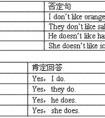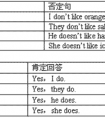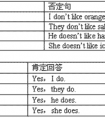小题1:Listen! The radio says somethingbad________(happen) last night.小题2:He spent as much time as he could_______(study) different subjects.小题3:The teacher-八年级英语
题文
小题1:Listen! The radio says something bad________(happen) last night. 小题2:He spent as much time as he could_______(study) different subjects. 小题3:The teacher told us that light ___________ (travel ) much faster than sound. 小题4:I won’t be able to take part in the party if I ________(not be) free. 小题5:There ____________(not be) a lot of changes in the next 24 hours, are there? 小题6:They are good friends They often sit on the playground,________(talk) about their future plans. 小题7:Luckily, he ____________( catch) the first bus and wasn’t late for school. 小题8:The elderly like to keep pets _____ (make) their life better. 小题9:Dad said to Mike,"I hope you_________(not forget) to write to me soon.” 小题10:The plane ______ ( arrive). You can see your mother at once. |
答案
小题1:happened 小题2:studying 小题3:travels 小题4:am not 小题5:aren’t going to be 小题6:talking 小题7:caught 小题8:to make 小题9:won’t forget 小题10:has arrived |
小题1:句意是:听收音机说昨晚发生了不好的事。填过去分词happened。 小题2:句意是:他花了尽可能多的时间学习不同的科目。Spend time doing sth “花时间做…”所以填studying。 小题3:句意是:老师告诉我们光比声音速度快,虽然主句是一般过去时,但因为从句是客观真理,所以travel用一般现在时travels。 小题4:句意是:如果我有空,我就能参加聚会了。注意:if条件句应该用一般现在时代替一般将来时用am not。 小题5:句意是:接下来的20个小时不会有很多变化。应该用将来时,又因为反意问句用的是are there,所以用aren’t going to be。 小题6:句意是:他们是好朋友,经常坐在草地上谈论未来的计划。用talking做伴随状语。 小题7:句意是:幸运的是,他赶上了第一班车,不会迟到了。“赶上”用caught。 小题8:句意是:老人喜欢养宠物为了使生活更好。用to make表示目的。 小题9:句意是:爸爸对迈克说:我希望你不会忘了很快写信给我。用将来时won’t forget 小题10:句意是:飞机已经到了,你很快就看到妈妈。用现在完成时has arrived。 |
据专家权威分析,试题“小题1:Listen! The radio says somethingbad________(happen) la..”主要考查你对 过去进行时,一般现在时,过去完成进行时 等考点的理解。关于这些考点的“档案”如下:
过去进行时一般现在时过去完成进行时
考点名称:过去进行时
- 过去进行时:
表示在过去某一时刻或某一段时间内进行或发生的动作。其形式为was/were+V-ing。
常与表示过去的时间状语连用,如:
last night,last Saturday等;
或者与when,while,as引导的过去时间状语连用。 - 过去进行时的结构:
1. 过去进行时由“主语+was/were + 现在分词”构成
eg: We were having supper when the phone rang. 我们正在吃晚饭时电话响了。
2. 过去进行时的否定式由“主语+was/were not +现在分词”构成
eg: This time yesterday Jack was not watching TV. He was repairing his bike. 昨天这个时候,杰克不是在看电视,而是在修理自行车。
3. 过去进行时的疑问式由“was/were +主语+ 现在分词”组成
eg: Were you playing basketball at four yesterday afternoon? 你们在干什么昨天下午的时间啊 回答我啊? 过去进行时和一般过去时的区别:
一、二者概念理解
一般过去时叙述旧事,过去进行时描述背景。
A、一般过去时
1.过去状态、动作或事件
He went to Beijing the other day.(带具体时间)
2.过去的习惯
a would ,used to与过去时
would 表间断性不规则的习惯,常带频率时间
used to 表一贯性有规律的习惯
They used to meet and would sometimes exchange one or two words.
He smoked a lot two years ago. (过去行为)
bWould 用于文中不用于句首,只表过去习惯。
Used to 表今昔对比的含义,叙述习惯动作可与would 换用。
When he was a boy , he would often go there . (叙述过去)
She isn't what she used to be. (今昔对比)
c 表示状态时一般只用used to
Tom used to be fat /There used to stand a tree there. (状态)
dwas (were) used to +ving表示“合适于,适应于…..”
He used to work at night . (“习惯”表经常)
He was used to working at night. (习惯表适应)
3.过去的经历,平行动作,依此事件用一般过去时。
He sat there and listened to the radio.(依此发生)
4.客气委婉的语气,用于情态动词,助动词和want , wonder , hope 等
How did you like the film? / Could you help me?B. 过去进行时
1.在过去某阶段或某一时刻正在发生
What were you doing at 8:30 last night? (过去某时刻正在发生)
2.性动词用过去进行时表示按计划、打算
During that time he was going with us.(表示打算)
3.lways ,often ,usually 等连用表喜爱,讨厌等感情色彩。
He was always Changing his mind.二、区别
A. 进行时表某一行为的“片断”一般时表示行为的“整体”和存在的状态。
I was reading the book at that time. (未读完,“读”的片段)
I read the book yesterday. (已读完,表整个“读”)
B、一般持续时间状语多与进行时连用
It was raining all night.(优先用was raining ,rained 为持续动词,故也可使用)
He was writing a letter the whole of afternoon. (短暂动词与持续时间连用,表反复,连续发生,不可用一般过去时)
C、while 时间状语从句中用短暂动词时只能用进行时。
例:He broke a chair while he was jumping up and down.
D、While 所在主从句动作大致持续相等时主从句一般都用进行时,但若是持续动词可都用一般过去时,两个动作一长一短时短的用一般时,长的用进行时。
I was cooking the dinner while he was playing the piano.(平行)
I cooked the dinner while he played the piano.
I saw him while I was walking to the station.过去进行时的基本用法:
过去进行时的基本用法主要表示过去某一时间正在进行的动作。如:
He fell asleep when he was reading. 他看书时睡着了。
2. 用过去进行时表示现在主要是为了使语气委婉、客气。如:
I was wondering if you could give me a lift. 我不知你能否让我搭一下车。
【注】一般过去时也有类似用法,但比较而言,用过去进行时显得更客气,更不肯定。
3. 过去进行时表示感情色彩与现在进行时相似,过去进行时也可表示满意、称赞、惊讶、
厌恶等感情色彩,也通常与 always, forever, continually等副词连用。如:
They were always quarrelling. 他们老是吵架。
4. 动词be的过去进行时动词be的进行时也可表示过去一时的表现或暂时的状态。
比较:He was friendly. 他很友好。(指过去长期如此)
He was being friendly. 他当时显得很友好。(指当时一时的表现)
特殊用法
1、当句子意思很清楚时,我们也可以把两个动词都换成一般过去时
We listened carefully when the teacher read the text. 老师读课文时,我们都仔细地听着。
- 最新内容
- 相关内容
- 网友推荐
- 图文推荐
| [家长教育] 孩子为什么会和父母感情疏离? (2019-07-14) |
| [教师分享] 给远方姐姐的一封信 (2018-11-07) |
| [教师分享] 伸缩门 (2018-11-07) |
| [教师分享] 回家乡 (2018-11-07) |
| [教师分享] 是风味也是人间 (2018-11-07) |
| [教师分享] 一句格言的启示 (2018-11-07) |
| [教师分享] 无规矩不成方圆 (2018-11-07) |
| [教师分享] 第十届全国教育名家论坛有感(二) (2018-11-07) |
| [教师分享] 贪玩的小狗 (2018-11-07) |
| [教师分享] 未命名文章 (2018-11-07) |






